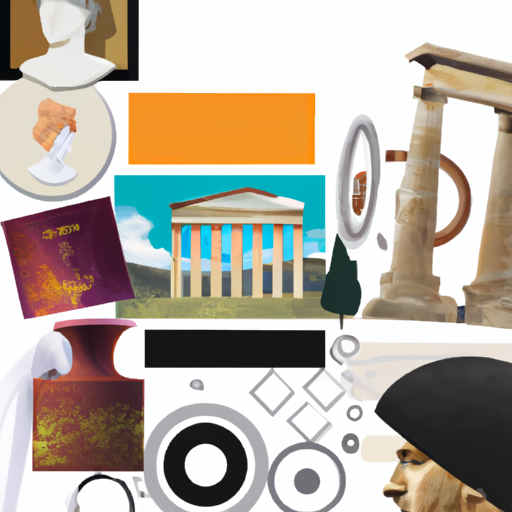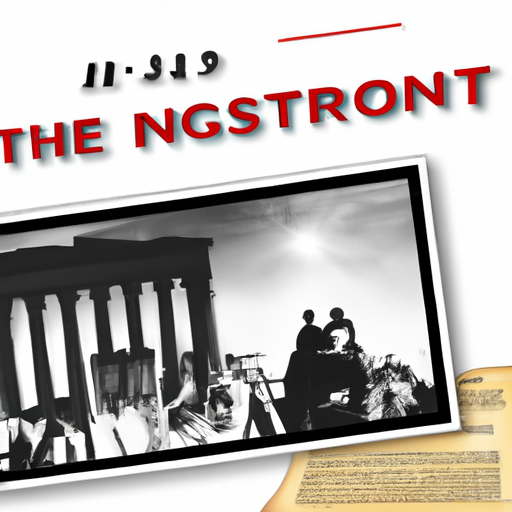A Look into the History of Victorian Strictness
Uncover the enigma of Victorian values and their stringent standards! Delve into the past to learn why these regulations were so rigid. Unearth what drove such rigidity and ponder how it impacted the lives of those living in that era. Analyze how these edicts affected society then, and consider if they still hold relevance today. Unravel the mysteries of this bygone age and explore its implications for our modern world.
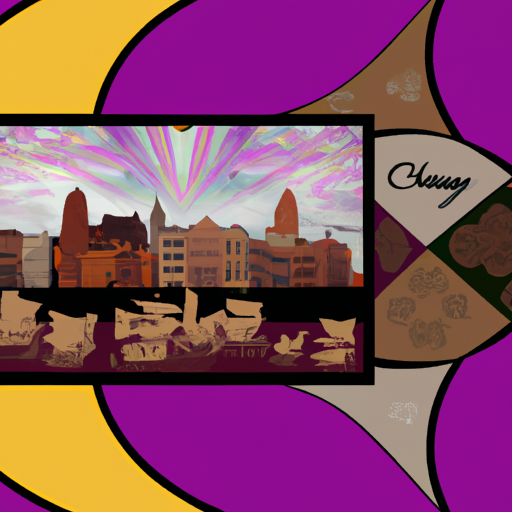
A period of tremendous transformation, the Victorian era was one of both flourishing and strictures. Regulations on dress and social decorum were rigorously imposed, leaving little opportunity for divergence. But why such stringent standards? What drove this need for control?
To understand, we must consider the context in which Victorians existed. Rapid industrialization and economic growth was accompanied by political unrest and moral unease. As society advanced, traditional values were seen to be eroding under modernity’s influence; thus, an increased emphasis on morality and respectability manifested itself through rules governing conduct in public and private life.
The implications of these regulations were far-reaching; clothing codes curtailed individual expression while moral expectations placed unbearable pressures on people’s actions. Those who failed to meet these standards risked being cast out or worse, creating a culture of conformity that stifled imagination and uniqueness.
Though these regulations have since been forgotten, their legacy still lingers today. Ideas that some behaviors are more ‘respectable’ than others remain embedded in our society’s collective consciousness, as does the notion that there is only one ‘right’ way to live your life. As we grapple with issues like gender roles and class divisions, it is essential to remember the lessons from our past so that we can create a better future for all.
.
Introduction
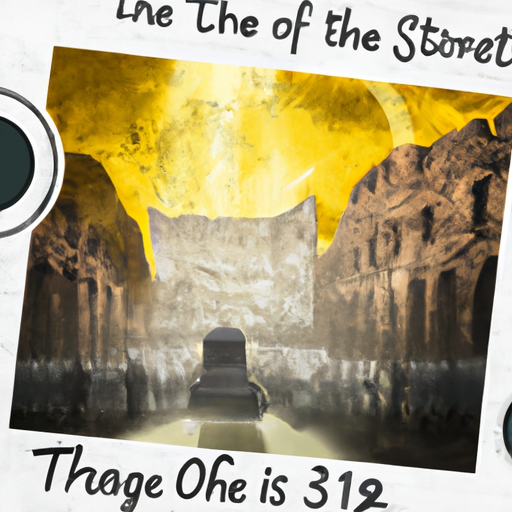
Amid a period of frenzied population growth in Britain, the Victorian era (1837-1901) saw the establishment of values and norms that are still part and parcel of society today. Strict adherence to social conventions, moral codes, and etiquette was demanded, often seen as unbending and oppressive. Traditional morality such as hard work, thriftiness, submission to authority, devotion to religion, and self-control were highly valued; this was due to Britain’s burgeoning industrialization which created fierce competition for resources and opportunities. In order to succeed in this cutthroat atmosphere it was essential to be disciplined. Respectability and decorum were also prized greatly by Victorians – proper behavior was seen as an absolute necessity.
– Investigating the Historical Context of Victorian Era Social Norms
Amidst an era of tremendous upheaval and financial prosperity, the Victorian period (1837-1901) witnessed a radical transformation in British social norms. The Industrial Revolution had created a vast disparity between the affluent and impoverished, leading to the emergence of a distinct class structure. This hierarchy was evident in almost all facets of life, from education and housing to job opportunities – with those of higher status enjoying greater access to resources while those below were left with few options.
Moral regulations were also highly regarded during this time; religion had a considerable influence on daily life and certain behaviors were considered sinful or inappropriate by many Victorians. Rigid dress codes for women, for instance, were strictly enforced by both law and public opinion, while marriage was viewed as essential for both men and women. Unmarried individuals often faced judgement from their peers.
Gender roles also played an integral role in shaping Victorian social norms; females were expected to be submissive to their husbands and carry out domestic duties such as cooking and cleaning, while males were seen as the primary source of income for their families. Women even faced legal restrictions that prevented them from owning property or voting until much later in the 19th century.
Exploring these historical contexts can provide us with invaluable insight into how people lived during this period – allowing us to gain a more accurate view that is not limited by modern preconceptions or biases. By examining primary sources such as diaries, newspapers, photographs, court records, etc., we can gain a more intricate understanding of what life was like for ordinary Victorians during this time.
– Examining the Impact of Religion on Victorian Society’s Strictness
The Victorian era was defined by a stringent adherence to moral codes and religious convictions, which profoundly affected the social framework of the time. The Church of England held considerable sway over people’s lives, dictating what was permissible or not. This led to a very rigorous view on morality, with certain behaviours being considered sinful or immoral – for instance, divorce was frowned upon because of religious teachings on marriage and pre-marital sex was viewed as an offence punishable by law. These rules were upheld through both legal means and social pressure from members of the church community.
Education during this period was also impacted by religion, with schools run by religious organisations such as the Church of England or Catholic schools teaching their students based on their own beliefs and values. This meant that students were taught about morality from a spiritual point of view, which often included strict rules about behaviour in class and outside school hours. This had a direct effect on how strictly students were expected to act within their community and follow certain guidelines when it came to socialising with others beyond their family unit.
Finally, religion also influenced how people perceived death during this time period. Funerals were usually carried out according to religious rituals which included prayers for the deceased person’s soul as well as readings from scripture. People believed that death was part of God’s plan for them so there was an emphasis placed on accepting it without question or complaint, leading to a more stoic attitude towards bereavement than is seen today.
In summation, religion had a powerful influence on the rigidity of Victorian society through its impact on laws, education and attitudes towards death and grief. It is evident that religion played an indispensable role in forming the values of this era and enforcing certain standards of behaviour among its citizens.
– Analyzing How Imperialism Shaped Victorian Values and Behaviors
The 19th century saw a period of great upheaval as Britain emerged as the world’s most powerful empire, with colonies spanning the globe. This expansion of influence brought about drastic changes in terms of how people interacted with one another and what was seen as acceptable behavior. With increased contact between countries through trade or military operations, citizens from different backgrounds began to interact more frequently, leading to a shared set of values based on mutual respect and understanding.
At the same time, people were exposed to new ideas and cultures from around the world, which allowed for more open-mindedness towards different customs and beliefs. This acceptance of diversity helped shape Victorian values such as tolerance and respect for others. The newfound wealth that came with imperialism also enabled new forms of leisure activities such as travel and entertainment among the upper classes, which often reflected imperial values such as ambition and competition.
These changes brought about by imperialism are still felt today in terms of cultural exchange, material wealth, and social interaction between different nations around the world. Clearly, this period had a significant impact on Victorian values and behaviors that is still evident today.
– Exploring the Role of Social Class in Establishing Victorian Expectations
Diving into the Victorian era, one finds a society that was structured around social class. The upper classes were required to carry themselves with a certain elegance and grace, while those of lower standing were expected to adhere to more menial roles. This disparity in expectations was enforced through the power and influence held by the aristocracy, who had access to wealth and privilege not available to others. They were expected to dress for formal occasions, speak with proper etiquette, and act accordingly at all times. On the other hand, those from less affluent backgrounds were limited in their ability to advance within society and often found themselves in manual labor or service-oriented positions. Here, hard work and obedience took precedence over sophistication or refinement. Ultimately, it is evident that social class played an imperative role in dictating expectations for both genders during this period of history.
– Understanding How Education Influenced Victorian Attitudes Towards Rules and Regulations
The Victorian era saw a dramatic shift in the way people regarded rules and regulations, largely driven by advances in education. As educational opportunities became more widely available, Victorians developed an appreciation for laws and regulations that had previously been absent. This newfound understanding of their purpose and importance helped shape many aspects of life during this period, from industrialization to social reform movements.
Prior to the Victorian era, educational opportunities were scarce and primarily accessible to those with financial means. However, Queen Victoria’s reign saw the expansion of public schools and universities throughout Britain, making education more accessible for all. With increased knowledge about laws and regulations, Victorians became more accepting of them as necessary tools for maintaining order and stability.
This appreciation for rules had far-reaching implications on many aspects of life during this period. Industrialization was bolstered by legal frameworks that provided workers with rights and protections; economic development was facilitated by laws that enabled new businesses to flourish; social reform movements were strengthened by regulations that sought to improve living conditions; and politics was influenced by a greater understanding of how laws could be used to bring about positive change.
In conclusion, education played a key role in shaping Victorian attitudes towards rules and regulations. By providing more people with access to educational opportunities – both at school level and university level – Victorians gained a better understanding of laws and regulations that allowed them to appreciate their importance in society. This appreciation ultimately helped shape many aspects of life during this period that still have an impact today.
conclusion
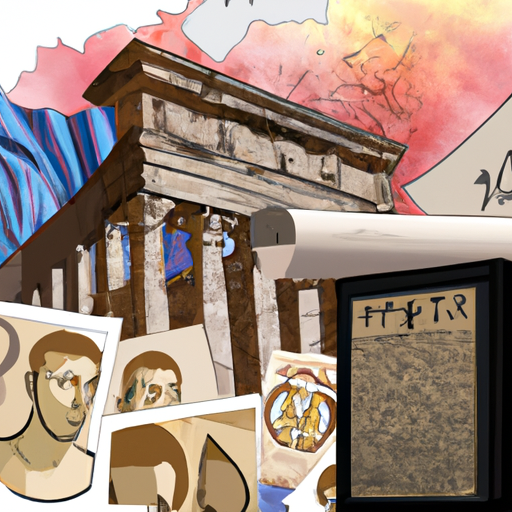
Amidst a period of relentless industrialization, the 19th century saw Britain take on an air of unprecedented moral and social order. Education, etiquette, and hard work were held to high regard, and these values manifested in the day-to-day lives of Victorians – a lifestyle that could appear rigid by today’s standards.
.
Some questions with answers
Q1. Why were Victorians so strict?
A1. The Victorian era was a period of extreme social and moral conservatism in the United Kingdom, which was largely driven by religious values. This led to strict rules and regulations regarding behavior, dress codes, and other aspects of life.
Q2. What were some of the rules imposed by Victorians?
A2. Some of the rules imposed by Victorians included restrictions on public displays of affection, a ban on certain types of clothing, and prohibitions against drinking alcohol or gambling.
Q3. How did these rules affect people’s lives?
A3. These rules had a significant impact on people’s lives as they limited their freedom and created an atmosphere of repression. People were expected to adhere to certain standards of behavior in order to maintain respectability.
Q4. How did religion influence Victorian morality?
A4. Religion played an important role in shaping Victorian morality as it was seen as a source of authority for many people during this time period. Religious teachings emphasized hard work, thriftiness, and self-discipline which all contributed to the strict moral code that was enforced during this period.
Q5. What can we learn from the history of Victorian morality?
A5. The history of Victorian morality teaches us that while religious values can be a powerful force in shaping society, it is important to remember that individuals should have the right to make their own decisions about how they want to live their lives without feeling restricted by societal norms or expectations.




